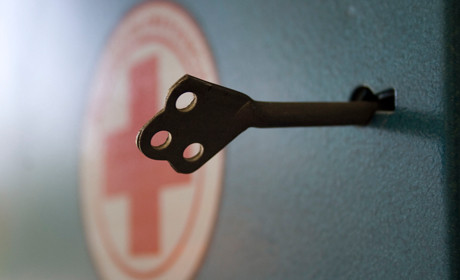
This week we have been looking at data-driven health reporting. Here we take a step back and look at tips in getting started in data journalism.
1. Be aware of the sources of data
So what are the sources of data that journalists have to work with?
Paul Bradshaw, lecturer in online journalism at Birmingham City University and at City University London and founder of Help Me Investigate says there are four sources:
- Public data, such as the data sets available on Data.gov.uk and the NHS Information Centre
- Requests via access to information laws, such as under the Freedom of Information Act
- Sources, with contacts leaking or passing on information to journalists
- Scraping, which involves turning information scraped from websites into a useful format (Bradshaw's written a very helpful ebook to take you through exactly how to approach scraping)
Bradshaw said he was faced with a five-hour wait when he took his son to accident and emergency at 2am one morning. That got him thinking about how waiting times vary and he decided it would be interesting to find out how long you could expect to wait at different times of the day, the idea being that you if you had a choice about the time you went to A&E, you could pick a time with a shorter wait.
In this post on Help Me Investigate, Bradshaw explains how he took the data from Hospital Episode Statistics site, HESonline, and how he sorted it.
The A&E data story "kickstarted a project around data in the Midlands and in Birmingham", Bradshaw explained, with Help Me Investigate partnering with the Birmingham Mail.
3. Two or more heads are better than one
Help Me Investigate was set up to help people collaborate on public interest journalism. Bradshaw founded the site four years ago, working with a team of editors.
"It was really about testing the idea of crowdsourcing and whether you could consistently use crowdsourcing techniques to do investigative journalism," he explained.
"One of the things that I've learnt at Help Me Investigate is if you have a common resource like a bunch of data, that really helps create something that people can collaborate around," Bradshaw said.
"The health system is about to undergo a massive change in terms of who has money and who has power, and as part of that we are trying to collect information on just that, particularly at the moment data on who has power.
"Who is going to be on the boards of the new bodies? Who will have spending responsibilities? What accountability will those groups have? What are their registers of interest? What are their constitutions?"
4. Don't be afraid of data
Bradshaw does not want journalists to fear data, but said there are some points to be aware of.
"One of the key considerations with health data is populations are different, they are not always comparable." For example, a journalist might be interested in a 'postcode lottery' story looking at the winners and losers.
"It is always a good idea to speak to someone to find out the context around that and find out why that might be so."
He said that a story can be quite simple and factual. "The A&E waiting times story wasn't about hospitals being worse or better, it was quite simply 'if you turn up at 1am this is the average waiting time you can expect'. There might be reasons for that but there is nothing wrong with that fact."
5. Always pick up the phone
Bradshaw's advice is to "keep it simple, but pick up the phone and speak to people who know the sector. Be curious but also be sceptical, don't always take people at their word and speak to more than one source if you can."
- Paul Bradshaw is running a course on getting started in data journalism for Journalism.co.uk. The details are here.
- This is the third in a series of features on health data on Journalism.co.uk. The first looked at how the BMJ approaches investigative reporting and the second looked at how open data can be used to examine the NHS.
Free daily newsletter
If you like our news and feature articles, you can sign up to receive our free daily (Mon-Fri) email newsletter (mobile friendly).









